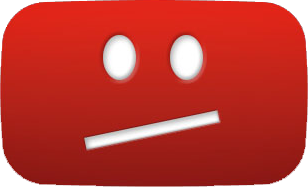Today, we have a group of Fact-Checkers around the world called the International Fact-Checking Network, which is a unit of the Poynter Institute dedicated to bringing together fact-checkers from around the world. It monitors trends in fact-checking, provides training resources, and organizes an annual fact-checking conference called #GlobalFact. Its goal is to promote best practices in fact-checking and provide a venue for collaboration among fact-checkers around the world.
Colombia and Chile have institutions that are signatories and belong to this international network. Colombiacheck from Colombia and Fast Check CL from Chile participate in this international effort to counter misinformation.
Fast Check CL was born in 2019 in Chile in the context of what was known in Chile as the Estallido Social, where there was strong social unrest and also occurred several violent situations that alerted the country. This chaotic scenario brought with it a huge wave of disinformation and that is where the initiative to verify the information shared virally was born. Eventually, Fast Check would also be dedicated to analyzing the discourse issued by political, business, and trade union authorities in both audiovisual and written content.
Colombiacheck was founded by Consejo de Redacción as a project that was born in 2016. It also comes to light in the midst of a complex social and political juncture, as was the plebiscite to inquire about the will of the Colombian people to carry out the peace agreement with the FARC guerrillas. In this context of statements by different public officials and politicians of national relevance and, on the other hand, the amount of misinformation that was circulating about the peace agreement. At this moment the organization is also dedicated to verifying the lies or truths told by political candidates, the president, mayors, and political figures.
One of the main and most relevant purposes of information verification organizations is to increase the cost of lies. Any citizen, politician, union, or business authority can lie without any cost because our democratic model and values do not sanction any actor for false statements. So, there is no incentive to tell the truth. Hence, an information verification organization puts filters on the speeches and statements of politicians, companies, and unions, so that they think twice before saying any false information, and that is when the cost of lying increases. These organizations have a very important democratic challenge, to the extent that they are the ones who allow delivering rigorous information, cured of vices and bad intentions to citizens so that they obtain credible information to make decisions in their daily lives.
The modern world has brought about some technological advances that have been of great help to humanity. The internet and its offerings, including social networks, is the invention that allows us to communicate and be better interconnected. However, these inventions have also brought with them some negative externalities that have benefits but also some detriments. Disinformation is one of those and it is alive in the information we consume from social networks and websites.
For this reason, we'd like to provide you with some tips useful to verify the information we consume daily when using our digital devices:
1. We should ask ourselves several questions:
- Who is sharing it?
- Is the source that sends it reliable?
- Why do I want to share it?
2. Be wary of screenshots, of WhatsApp chains that are forwarded many times, of audios from people we do not know and who greet us with familiarity.
For more tips on recognizing and countering disinformation online, register for our free, online course here:
Here you can watch the recording of the "Discussion on fake news and Fact-Checking in the Chilean and Colombian context" which took place on September 8, 2022.
Background illustration: Photo by Anyaberkut from Dreamstime / Dreamstime license

